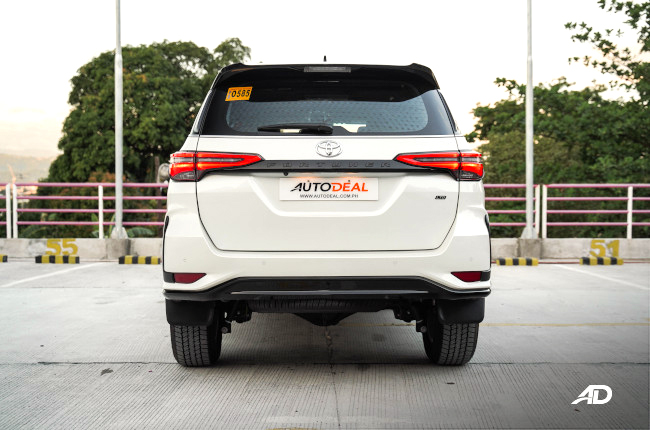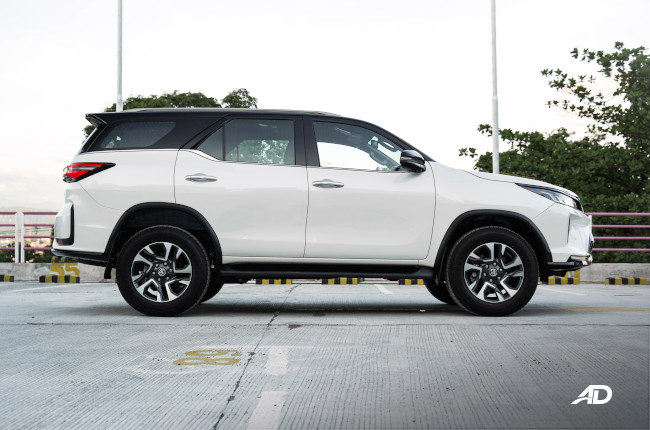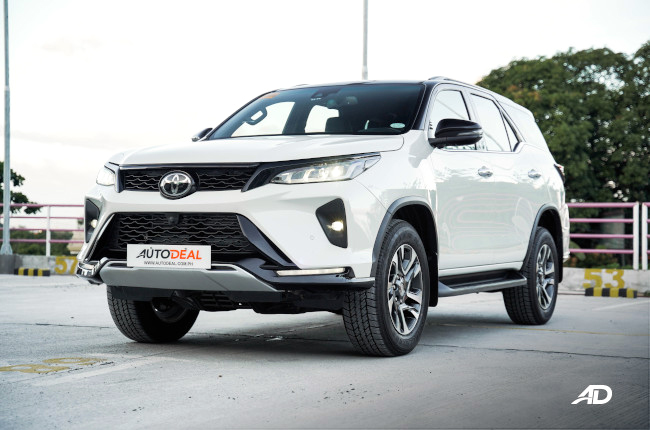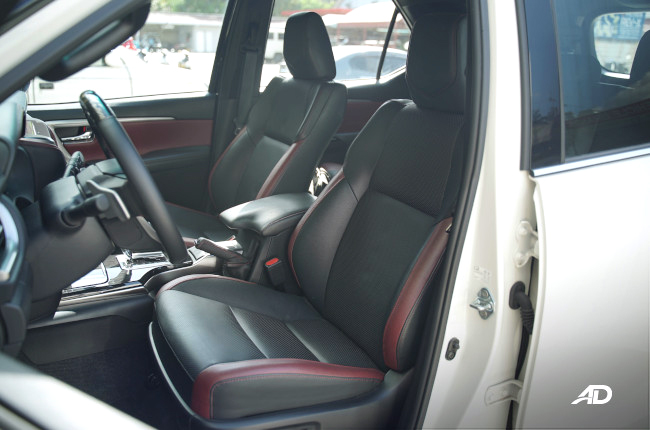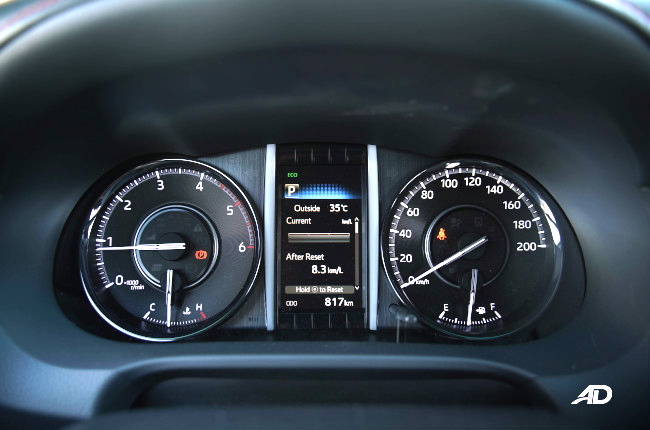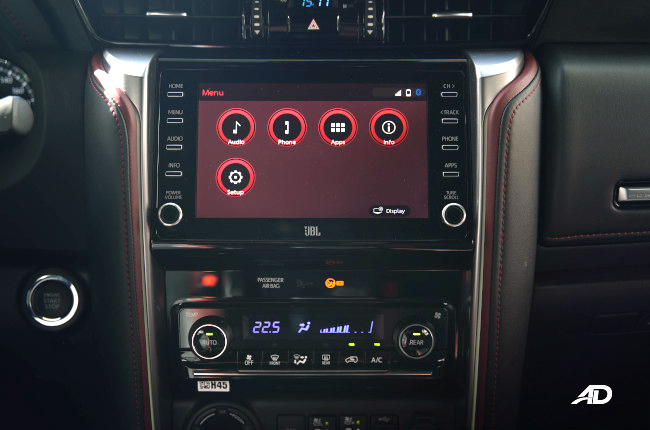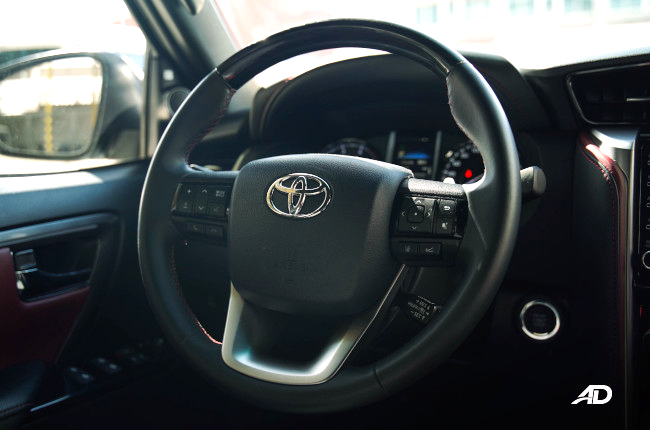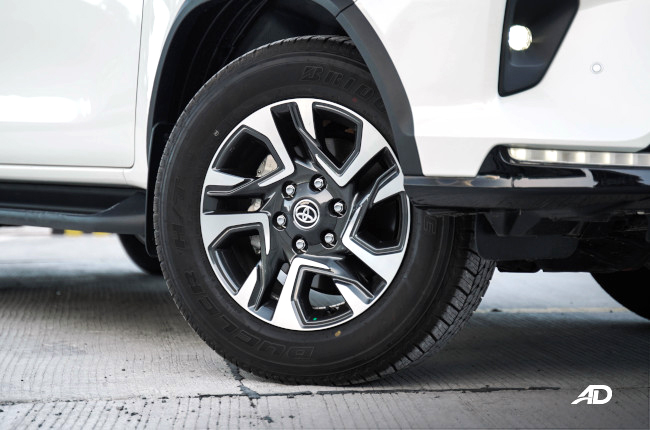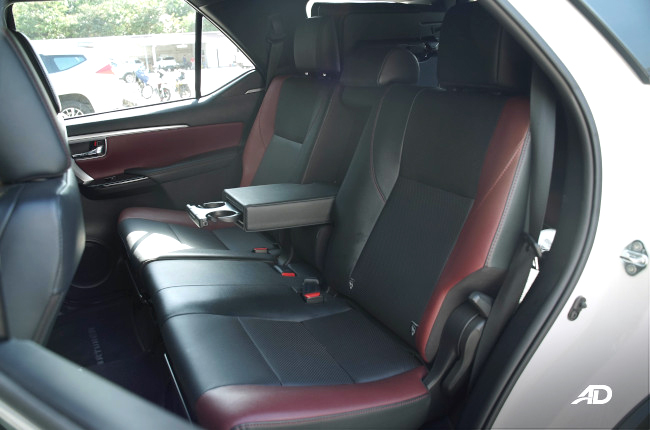
We’ve seen our fair share of mainstays in the Philippine market, but has anyone ever stopped to ask why a certain model continues to sell? In a sea of better options, what keeps cars like the Toyota Fortuner one of the champions in its segment? What makes it such a contender even if it’s rated as one of the more expensive in its class? Why do people continue to buy it?
Thanks to our myriad of friends who’ve gone with the Fortuner, we might have an answer to that. However, we might just end up with more questions in the end so stick around and get our full thoughts on the Fortuner.
It’s a Toyota

One of the first things that we’re frightfully aware of in the Philippines is that Filipinos love the Toyota brand. Not only is it one of the pillars of the auto industry, but it also stands for quality, longevity, reliability, and more. In our line of work, you do not ignore Toyota because pretty much every car in their lineup is carried to mild or strong success by its badge alone so missing a launch or failing to get your order in on time might result in a waiting time of sorts depending on the model (don’t get us started on how long the lines are for the Toyota Alphard or Land Cruiser).
When it comes down to it, however, we’ve come to review a number of models from the brand that were less than solid, yet Pinoys still hop on the model and buy it because they know that the brand’s cars won’t let them down, or at least they trust that they won’t. There is more to a brand than just the specifications and features, Toyota is the number one brand in the country and there are a lot of dealers, service centers, and a boatload of parts. Support for the brand runs deeper than just the reach of its dealers, and that incentivizes a lot of car owners who take maintenance and spare parts availability very seriously.
An established brand with an established nameplate
Look, while the Toyota marque carries its own weight in gold, so too does the nameplate. If a name is totally new, there will be a few naysayers. However, the Fortuner has been around long enough to net itself a stellar reputation for reliability and dependability. The model first debuted in the early 2000s. What carried it was the fact that it was a midsize SUV whose platform was rooted with the Toyota Hilux and its tried-and-tested diesel engine. At the time, Toyota had a 3.0-liter in the Fortuner. Nowadays, the most powerful engine is a 2.8-liter turbodiesel mill that punches out 201 horsepower and 500 Nm of torque which is more than enough for many. However, the volume sellers in the lineup will come with a 2.4-liter with still workable amounts of power and torque.

The thing is, people have come to trust the Fortuner. It’s been a reliable companion for many families over the years. Heck, some of us in the team were once Fortuner owners and a number of our friends chose the SUV as their family or personal vehicle of choice.
It’s not without its downsides
Over the years, however, the Fortuner has met a couple of rivals. The longest-running rival is the Mitsubishi Montero which offers better cargo-hauling capabilities and a better ride which leads us to one of its chief downsides. Apparently, it’s still one of the bumpier PPVs out there, outshone by other options like the aforementioned Montero Sport, the Ford Everest, and even newer entries in the market like the Nissan Terra.

The rear cargo area still uses the old fold-up-and-to-the-side approach to get a flat floor, while other SUVs will place their rear seats into the floor of the cargo area. Toyota still hasn’t revised this system because it would probably be too expensive of a fix. Either way, people are still willing to put up with this, and we’re still not too fond of it.

Other than that, we have to mention the implementation of Toyota’s features in the Fortuner. Yes, it comes with the latest and greatest now, but it took a while for the Fortuner to catch up in the tech department. It’s only this generation that gets a 360-degree view camera, Apple CarPlay and Android Auto, Toyota Safety Sense, and more. Other brands have these features and then some but Toyota was slow to catch up to the rest of the market, which didn’t hurt sales too much if we’re being honest.
Even with those downsides, people still continued to buy the Fortuner. While it won’t be our first choice because of its downsides, people still end up buying the SUV. Even if other brands have better features and driving comforts, the Fortuner still continues to soldier on.
Despite the shortcomings…

While we did critique the Fortuner in the past, we cannot deny that it is still one of the best-selling SUVs in the market today. All you have to do is take a drive through town to see. Even the old models are still puttering around town, and there are tons of new ones happily driving and trudging through traffic or going out of town with their families.
If you look at it in a bubble, it has pretty much everything you need. The space is good enough, the features good enough, the engine is good enough, and the drive is good enough. We keep comparing the car to others based on the face value and the impressions that they present, however, to many people, maybe good enough is just “good enough.” There is no denying that Toyota is a more conservative brand compared to others, and they’re not just servicing niches in the market. The Japanese marque services more than just the midsize SUV segment, it services everyone from crossovers to sedans, and even on the luxurious end of the spectrum with Lexus.
The Fortuner is a Toyota. It also gets great resale value in the second-hand market. Cars are expensive, and second-hand shoppers actually prefer buying a Toyota over other brands, and the prices show. Considering that buying a car will take a lot of money and that maintaining or repairing a car is another can of worms altogether, the fact that you can still sell an old Toyota for a good chunk of its acquisition price is a great deal.
It’s really the long-term play here with the Fortuner, and we get it. It only takes one browse through our second-hand car listings to gather that the Fortuner is one of the models that holds its value exceptionally well compared to its rivals. Considering the actual cost of ownership (considering that you recoup your cost of buying brand new by selling the car) it’s not all that bad. Even with its shortcomings, it seems like a better long-term investment, of course, if you’re willing to put up with its quirks.
The long-term play

People are still buying the Fortuner even if reviewers say that it comes with its own compromises, but if you dig deeper, you might find that it’s a logical choice from a financial point of view. If your car after five years of ownership and thousands of kilometers can still fetch more than half its price in resale value, that’s a total win in our books and in the books of many happy Fortuner owners.
So going back to the question we posed, “Why are people still buying this SUV?” One, it’s a Toyota, one of the most dependable brands out there. Two, it’s a Fortuner, an established and recognized nameplate built on the backbone of one of the most reliable model lines in the world, the Hilux. Three, it’s got just about everything that you need albeit with a few flaws here and there. Finally, you can still recoup a majority of what you paid for it by selling it to someone who will be more than happy to pay the second-hand Toyota premium in the used market.
Our opinion is that it is a very long-term-oriented car and a decision that can go beyond the initial payment and the flashy features. For reviewers, it may be a compromise, but owners may argue that it comes with the least amount of compromises during and after the actual ownership experience, not just the drive.
Latest Features
-
The 6 things every Ford Ranger must pass before it leaves the factory / Featured Article
Every Ford Ranger, from the base model to the Ranger Raptor, goes through a full inspection process before it leaves the factory. This includes six steps that make sure it’s ready to drive a...
-
Which GAC AION EV is best for your everyday lifestyle? / Featured Article
The GAC AION lineup has something for everyone, maybe you're after space, speed, or just a smooth city drive. Here's a quick breakdown of which model might work best for your day-to-day life...
-
The AutoDeal Awards 2024: Celebrating excellence in the auto Industry / Featured Article
The AutoDeal Awards 2024: Celebrating excellence in the auto Industry
Popular Articles
-
Cheapest cars under P700,000 in the Philippines
Jerome Tresvalles · Sep 02, 2024
-
First car or next car, the Ford EcoSport is a tough package to beat
Jun 18, 2021
-
Car Maintenance checklist and guide – here’s everything you need to know
Earl Lee · Jan 12, 2021
-
Most fuel efficient family cars in the Philippines
Bryan Aaron Rivera · Nov 27, 2020
-
2021 Geely Okavango — Everything you need to know
Joey Deriquito · Nov 19, 2020
-
Family cars in the Philippines with the biggest trunks
Sep 20, 2023
-
Head to head: Toyota Rush vs. Suzuki XL7
Joey Deriquito · Oct 28, 2020
-
Why oil changes are important for your car
Earl Lee · Nov 10, 2020
-
2021 Kia Stonic — What you need to know about it
Joey Deriquito · Oct 16, 2020
-
Top 7 tips for buying a used car in the Philippines
Joey Deriquito · Nov 26, 2020


